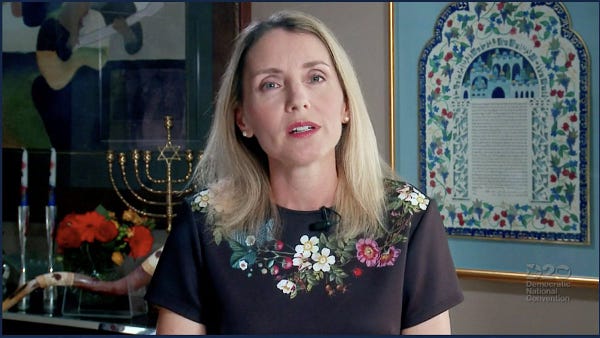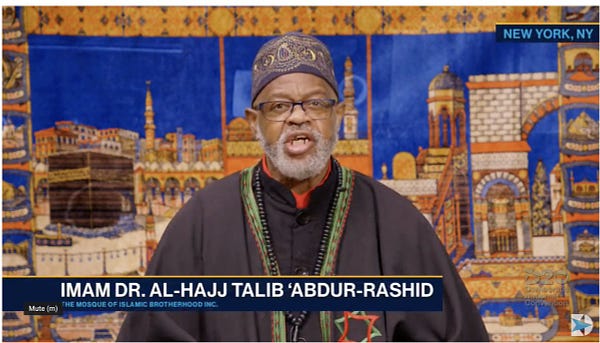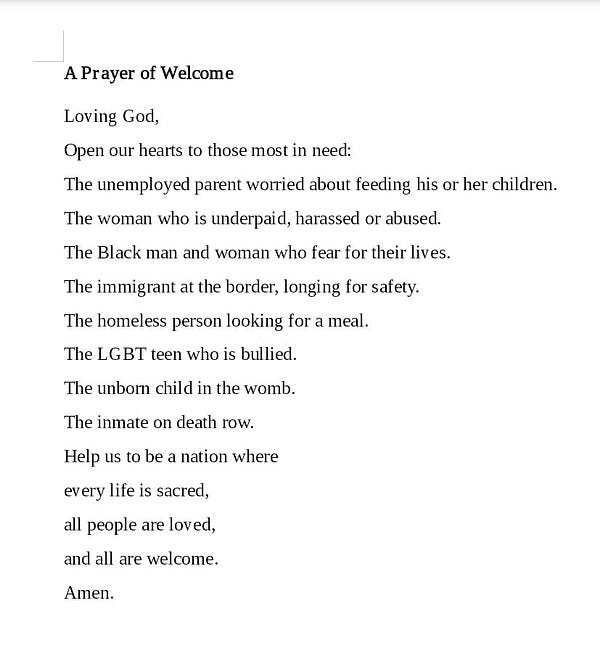Notes on the Democratic Convention: Day 4
Read my notes on Day 1 of the convention here. Day 2 here. And Day 3.
The Democratic convention concluded tonight, and there’s quite a bit to discuss. I’m not going to be able to cover all of it here, but let’s see what we can address.
First, here’s a couple links from the day:
This Molly Ball profile of Sen. Harris is really helpful.
Senator Coons wrote an op-ed on Biden and faith for Fox News. Strategically, I think it’s one of the best cases for Biden to faith communities that I’ve read.
2020 Democratic Convention: Day 4 Review
Tonight’s convention did not include a few targeted faith appeals, faith was a part of the evening from beginning to end. Essentially the first forty minutes of the convention centered on or significantly involved faith. Sr. Simone Campbell, who I had the honor of inviting to speak at the convention in 2012, delivered the invocation tonight. That led into Senator Chris Coons whose entire speech was about faith. Coons, a graduate of Yale Div and a committed Christian, spoke explicitly about Joe Biden’s personal faith and character, and Joe’s understanding of and respect for the role faith plays in Americans’ lives. A couple excerpts:
I'm Senator Chris Coons, of Delaware, and I want to tell you about my friend, Joe Biden. His faith is strong and it's personal and private. For Joe, faith isn't a prop or a political tool. I've known Joe about 30 years and I've seen his faith in action. Joe knows the power of prayer, and I've seen him in moments of joy and triumph, of loss and despair, turn to God for strength.
More than anything, Joe is a man of faith and conscience. He'll be a president for Americans of all faiths, as well as people of conscience who practice no particular faith.
After Coons, Mayor Keisha Lance Bottoms spoke about John Lewis, C.T. Vivian and voting rights and civil rights, which led into a video on John Lewis and the Civil Rights Movement leading into today. Then John Legend and Common performed their gospel-infused song “Glory.” Then Jon Meacham, a Christian who has written a book about Jesus, spoke about the values of the Civil Rights Movement and the moral moment we’re in right now.
It was 40-minutes of faith-grounded programming. Faith came up in other moments this evening. Pete Buttigieg talked about a “faith that is about healing, not exclusion.” The extensive biographical video leading into Biden’s speech featured several references to faith, from Biden’s Catholic education to frame of Biden praying using Beau’s rosary after his death. The benediction was shared between a Jewish, Muslim and Catholic speaker. You’ll note that Fr. James Martin included the unborn in his prayer.




You absolutely must watch this video about Brayden, who Biden met at an event on the campaign trail and they bonded over the fact that Brayden stutters.
Biden’s Speech
Joseph Biden more than met the moment.
He opened his speech quoting Ella Baker:
Ella Baker, a giant of the civil rights movement, left us with this wisdom: Give people light and they will find a way.
Give people light. Those are words for our time.
The current president has cloaked America in darkness for much too long. Too much anger. Too much fear. Too much division.
Here and now, I give you my word: If you entrust me with the presidency, I will draw on the best of us not the worst. I will be an ally of the light not of the darkness.
He accepted the Democratic Party’s nomination:
I am a proud Democrat and I will be proud to carry the banner of our party into the general election. So, it is with great honor and humility that I accept this nomination for President of the United States of America.
But while I will be a Democratic candidate, I will be an American president. I will work as hard for those who didn't support me as I will for those who did.
That's the job of a president. To represent all of us, not just our base or our party. This is not a partisan moment. This must be an American moment.
The speech was framed around “four historic crises”
The worst pandemic in over 100 years. The worst economic crisis since the Great Depression.
The most compelling call for racial justice since the 60's. And the undeniable realities and accelerating threats of climate change.
And in the most important substantive section of the speech, on COVID-19, Biden was strong, clear and authoritative. It’s worth watching especially this section of the speech, and the vocal power he summons. He also spoke to those who had lost loved ones:
I know how it feels to lose someone you love. I know that deep black hole that opens up in your chest. That you feel your whole being is sucked into it. I know how mean and cruel and unfair life can be sometimes.
But I've learned two things.
First, your loved ones may have left this Earth but they never leave your heart. They will always be with you.
And second, I found the best way through pain and loss and grief is to find purpose.
As God's children each of us have a purpose in our lives.
And we have a great purpose as a nation: To open the doors of opportunity to all Americans. To save our democracy. To be a light to the world once again.
To finally live up to and make real the words written in the sacred documents that founded this nation that all men and women are created equal. Endowed by their Creator with certain unalienable rights. Among them life, liberty, and the pursuit of happiness.
I’ll also say that Biden spoke with really convincing sincerity about Kamala Harris. I got the sense that he is utterly confident with his choice.
He closed his speech meaningfully with a poem he’s quoted thousands of times:
The Irish poet Seamus Heaney once wrote:
"History says,
Don't hope on this side of the grave,
But then, once in a lifetime
The longed-for tidal wave
Of justice can rise up,
And hope and history rhyme"
This is our moment to make hope and history rhyme.
With passion and purpose, let us begin – you and I together, one nation, under God – united in our love for America and united in our love for each other.
For love is more powerful than hate.
Hope is more powerful than fear.
Light is more powerful than dark.
This is our moment.
This is our mission.
May history be able to say that the end of this chapter of American darkness began here tonight as love and hope and light joined in the battle for the soul of the nation.
And this is a battle that we, together, will win.
Recap
So what do we make of all of this?
I have watched political conventions for a long time. I’ve helped to plan aspects of two presidential conventions. I’ve been involved in all kinds of presidential campaign events. I’ve never seen such a sustained focus on faith as what we saw this evening. What explains it?
Donald Trump needs religion to work for him in order to win in November. He has no other choice. This explains desperate Trump and conservative media’s attempts to make mountains out of molehills regarding anything involving faith and anyone associated with the Democratic Party. It is why Trump has said ridiculous things in the past few weeks like suggesting Biden would “hurt God.” Trump can’t win without arguing to religious Americans that they need to be fearful of a Biden presidency, AND Biden letting him make that argument freely. This is essentially what the Clinton campaign did. They acted as if anyone who could possibly be appealed to on the grounds Trump appealed to them was inevitably a Trump voter. The message many religious voters received was that Trump was right, Democrats were out to get them. Democrats didn’t want their vote.
This is the argument I made during the 2016 campaign and after. And it was pretty lonely at times. But I made the argument, because I believed Donald Trump would be disastrous president. After he won, I made the argument because I believed the mistakes that were made in 2016 could not be made again.
Well, it’s clear that the Biden campaign is not going to make that mistake. The question in 2020 will not be whether Biden asked for the votes of religious Americans, but how religious Americans will respond; whether the case Biden makes will be enough.
We should be careful of shallow thinking as analysts and as citizens. As analysts, faith references matter, but just saying the word “God,” or acknowledging faith is not a skeleton key for faith voters. That’s not entirely the point. The analysis can’t be “look how much Democrats talked about faith at their convention! Religious voters have no choice!” There are many more factors that go into it. In the coming weeks, I’ll continue to look at how the faith vote is playing out in this election.
As citizens, and as Christians, we do not vote based on who tickles our ears the most. We don’t tally up mentions of God, and decide our vote that way. That’s not why faith rhetoric matters to us. Instead, we should think about faith rhetoric—all political rhetoric—in terms of what it offers us in order to hold politicians accountable. When politicians acknowledge the role faith-based organizations play in serving those in need, the value of that is not an ego boost, but that in that recognition comes an implicit commitment to support that service, not undermine it. When politicians acknowledge the dignity of work, its value is not that we get the chills because that concept has deep Christian roots, but rather that it suggests the value of the dignity of work will guide political decisions, and we can now hold those politicians to the standard of whether their policies reflect a recognition of the dignity of work. This is how and why speeches should be persuasive: because speeches provide means of accountability.
But I want to make one more point about ubiquity of faith in this convention generally, and tonight in particular. All of the faith references are not just a matter of outreach, but of being true to the backbone of the Democratic Party. For too long, party leaders have been happy to say we’re the party of Black and brown voters, but somehow when it came to matters of faith and culture, it would often seem the party was taking its marching orders from elsewhere. But what Biden understands, and what the convention tonight reflected, is that for many Democrats, faith is not just some nice cultural reference point, but at the very core of many Democrats’ lives. It motivates their decisions, their politics. What we saw tonight was a substantive view of faith.
To convey such a view comes with obligations and responsibilities. Biden is now on the hook in a way he wasn’t before. Religious voters, among others, can place a new expectation on him that he invited when he said that he would be their president, too. It’s a responsibility he asked for when he asked for their vote. And it’s a good thing he did.
-Michael
P.S. If this work is valuable to you, would you consider becoming a subscriber? You’ll receive content and exclusive analysis multiple times a week.





